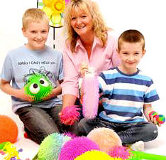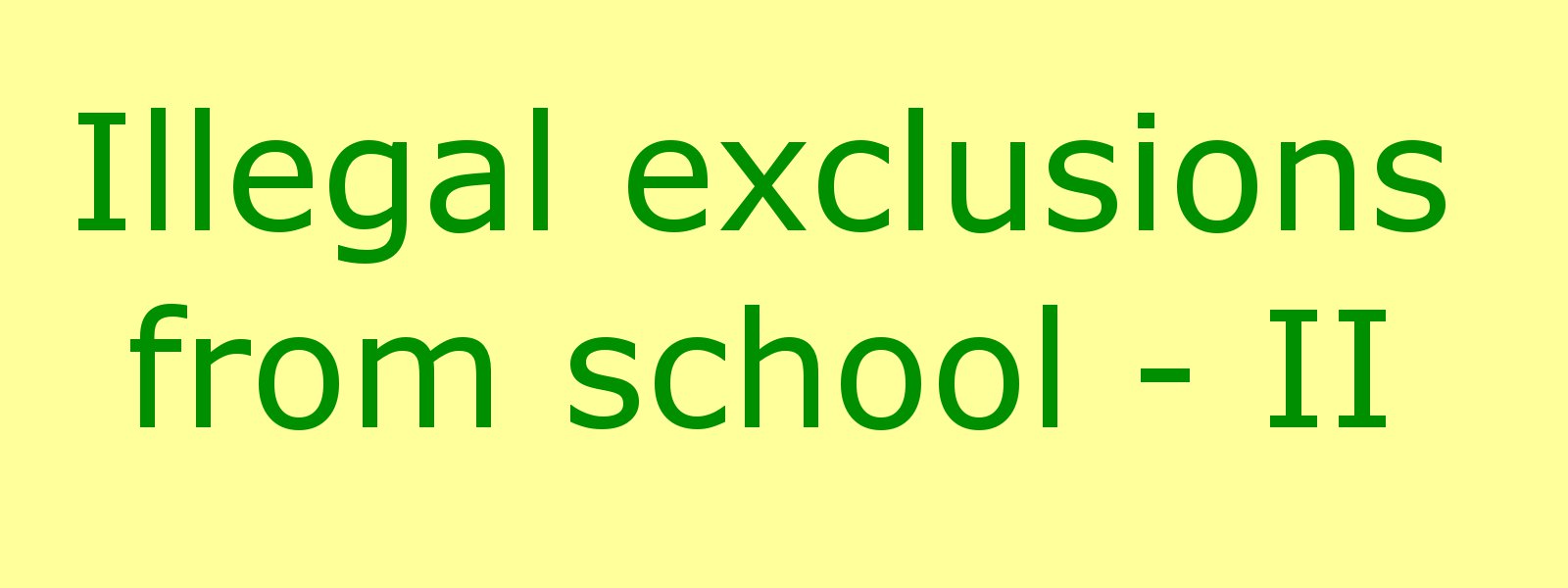
'It was a wretched experience for us, and I do feel that the practise is hidden by schools, and there are no penalties for those who are found out.'
Falling through the net – Illegal exclusions, the experiences of families with disabled children in England and Wales (2013) found children with a disability, SEN or additional needs are routinely illegally excluded from school, almost a quarter (22 per cent) are illegally excluded every week and 15 per cent every day.
This is having a devastating impact on their education and mental health.
For parents, half report they are unable work due to the impact of illegal exclusions on family life. Parents also repeatedly talked about the additional pressure put on their relationship with a partner or other children in the family.
Typical scenarios include
-
- Parents called to school to pick up their child because it is for child's 'own good' as he or she is having a bad day (70%) or there are not enough staff available to support their child (53%).
- Parents told by the school that their child can't take part in a class activity or trip (56%).
- Schools puts child on a part-time timetable (60%).
Illegal exclusions are unlawful - even with the parents' consent.
A child can only be legally excluded from school for disciplinary reasons. Headteachers must formally tell a parent that their child will be excluded by giving them details in writing.
Our survey was carried out with parent carers who recognised that their child was being illegally excluded. As a result we fear that this is just the tip of the iceberg and many more children with a disability, SEN or additional needs are falling through the net.
The report makes a series of recommendations and we hope this report will raise awareness and prompt parents to seek advice from our helpline on 0808 808 3555.
We've already had good feedback from parents, including :
I was much heartened to read the results of your parent survey on this topic in today's Guardian. I have three children, two with ASD, and my son has just moved schools having been through much the same process. Unofficial exclusion is presented as helping the child; the only thing to do, there aren't the staff to manage the behaviour. It would be a brave parent who refused to take their child out in the face of that. You want, after all, to stay on good terms with your child's school and for your child to be wanted. When I pointed out-after months of no complaint-that the random removals were putting my small part time job at risk, I was told "your job is also to be his mother". I have had help from your organisation over the years. You were very helpful. If you need any other reports in the future, please let us volunteer. It was a wretched experience for us, and I do feel that the practise is hidden by schools, and there are no penalties for those who are found out.
Contact a Family would like to thank all the parent carers who completed this survey and our sector partners for promoting the survey.
Contact a Family - For families with disabled children and young people
The Contact a Family freephone helpline is an advice service for parents and family members caring for a disabled child.
We also have a dedicated SEN (Special Educational Needs) service to advise families, on any aspect of their child's education. Freephone helpline 0808 808 3555 (9.30 – 5pm Mon-Fri) email: This email address is being protected from spambots. You need JavaScript enabled to view it.





